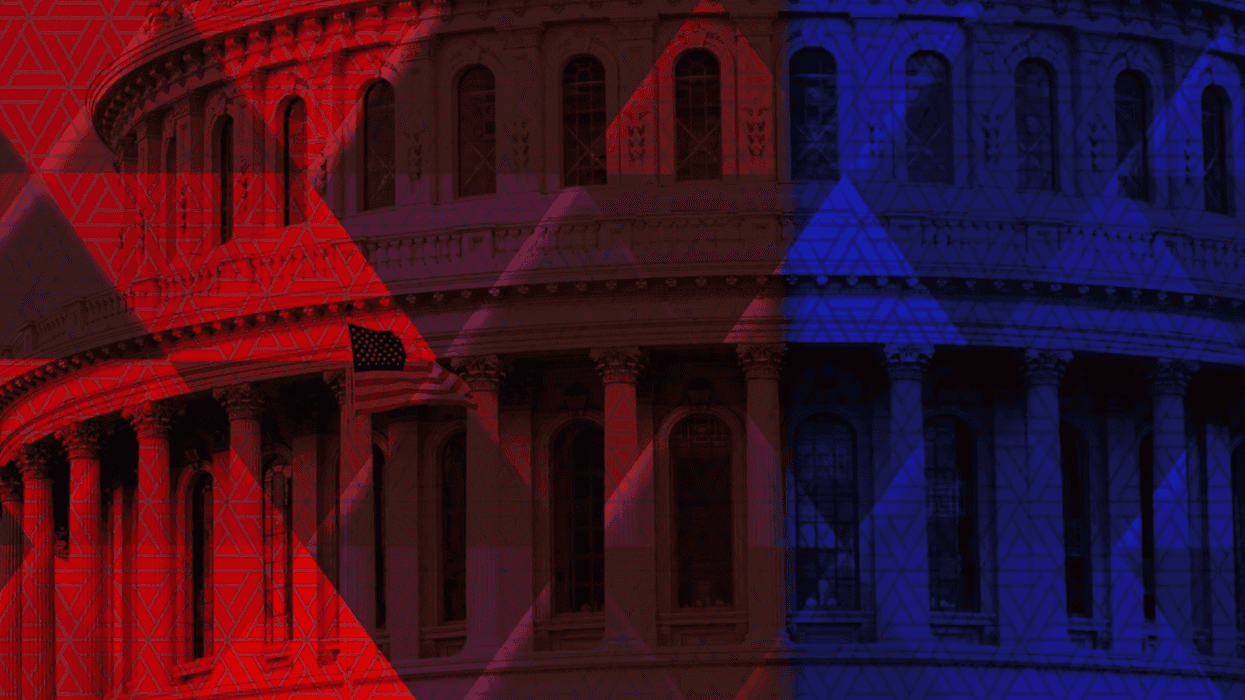In our highly polarized society, many individuals on all points of the political spectrum feel the opposing side is in the wrong – wrong about policy issues, wrong character issues, wrong about everything. This feeling could stem from opposing arguments, a difference in ideology or headlines that point to a certain politician’s alleged wrongdoing.
While politicians repeatedly point to “corruption” by the other side in order to win political fights, such claims regularly impact the dialogue among everyday Americans. Whether it be Hillary Clinton’s emails or Donald Trump keeping classified documents at Mar-a-Lago, individuals love to point fingers at the other side while simultaneously overlooking or defending their own.
However, it brings up the question: Is all corruption equal? Are all of the hypocrisy and infractions on the same level of corruption? Are some wrong doings worse than others?
We asked our readers to give their thoughts. These responses have been edited for clarity and length.
The question is predicated on corruption being baked into both parties. I don't think that's the case. I believe there are corrupt politicians on both sides. There are also politicians who will overlook the corruption of others as a means to maintain the power of their party. Is that corruption? Maybe. I also have to believe that there are still people in politics who are not corrupt and actually have what they consider to be the best interest of their constituents in their hearts, even if I don't always agree. Are there degrees of corruption? I don't think so. Corrupt is corrupt. Should we accept some corruption if it is less destructive? No. - Rod Miller
My quick take is that not all corruption is equal, but all corruption is a degradation of just and equal treatment under the law. For example, the fatal poisoning of a political rival is more corrupt (certainly in terms of outcomes) than a bureaucrat pushing someone to the front of the line for a construction permit, in exchange for a small bribe. - Robert
Yes, all corruption is equal. Hillary wasn't proven guilty – after many investigations and hearings, no less. But that was over six years ago and things have changed a lot. In today's political world, things have gotten almost unbearable when it comes to criminal intent, theft, mean-spirited lying, theft of character, lack of truth and detail. -Sarah Peters
Corruption has become a component of the system of government – clearly at the federal level and also locally. The key to having influence is to be in office for a long time to get to a position of power. To do this, candidates need to start fundraising the moment they take office, and they spend an inordinate amount of time doing that. They also have to “play” to those who they deem make up their base. Looking to a system that would consider alternatives to the longevity needed to have influence, and to the ability to change top officials (e.g. the parliamentary system) might be considered.
And, yes, there is corruption and those who are willing to point it out often lose their ability to unearth it and deal with it (e.g. Liz Cheney) - Arthur Rashap
My short answer is yes, corruption exists approximately equally everywhere. But we often focus on that corruption far more than the good that people do. For example, by focusing on the lives that humanitarian efforts bless, we are not turning a blind eye to corruption within political organizations, we are choosing to focus on the positive and helping people more than corruption can hurt them. - Bobby H.
The short answer is no, all corruption is not equal. The law, for example, divides misconduct into felonies, misdemeanors and infractions. Further, some conduct is illegal because it is prohibited and some conduct is not just prohibited but is also morally wrong. But this assume everyone agrees on the facts. Contrary to the old adage however, in today’s environment, the two sides are not only entitled to their own opinions but also "entitled" to their own facts. -Mike Davidson
It is not tit for tat. You are right, corruption and hypocrisy exist everywhere. But comparisons are possible. You cannot compare a blueberry to a grapefruit in size but both are fruit. That’s my analogy for what it is worth. - Rhoda Schermer
In any hierarchical entity, corruption is inevitable. As more people seek power to rise to the top of the hierarchy, the people seeking power very often do not have the requisite knowledge or experience to assume the new position. This is the beginning of corruption. Unchecked power for its own sake causes more damage than is imaginable. There is enough corruption on both sides to go around. Until this is addressed, there can be no settlement because those in power will not relinquish it. It will only continue to get worse. The answer is to replace the people in power who do NOT belong there with competent people. Then see what happens. -Joseph Stasio
Is all corruption equal? Yes and no! Society has authorized lawmakers to legislate what is actionably corrupt; if a person on any part of the political spectrum violates a law prohibiting corruption, then that is wrong, and should be acknowledged and punished, regardless of political party or views. Absent the imposition of unpleasant consequences on lawbreakers, the law effectively ceases to exist. On the other hand, once society has determined to punish a corrupt act or actor, the extent of punishment should be considered if there were "mitigating factors." This does NOT mean that anyone who violates a law by acting corruptly should be able to escape punishment, but a five-year prison sentence may be appropriate for an egregious violation, while a much shorter sentence or fine may be more appropriate for a lesser one. -Doug Sanderson
Not all corruption is equal. It should not be tolerated anywhere at any time. It undermines any kind of structure to the entity it has evolved in. But whom the corruption harms and whom it benefits should also be considered. Corruption at the highest levels of business or government are not equal to those at lower levels. Less benefit to fewer people and less harm to the greater public seems like a lesser degree of corruption. Still, corruption is wrong and those who are guilty of it should pay. -Penny Holliday




















